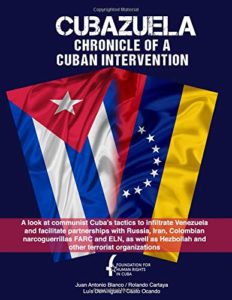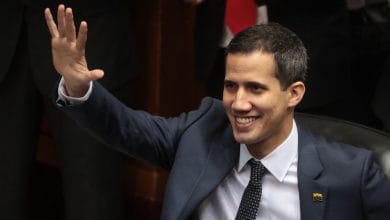
‘Daring to live in democracy’: Cuba protest could end in tragedy
In Cuba, these frequent outrages used to happen without too much of a scandal; the repressive machinery of the state was capable of disguising its constant episodes of injustice quite effectively. But that cloak, after years of resistance from various political opposition groups, seems to have been finally torn off, never to be mended again. Solís is part of the San Isidro Movement (SIM), and its members launched an impressive campaign of solidarity for his release, which they have already reinvented several times in little more than a week.
Cuban authorities on Sunday detained journalist Maykel González Vivero who has backed members of the San Isidro Movement currently on hunger strike, The Los Angeles Blade adds.
Activists say expanded internet access, with improved access to independent information sources – in tandem with greater U.S. attempts to force democratic reform – has resulted in authorities cracking down harder on them, Reuters reports. Jose Miguel Vivanco, director of Human Rights Watch Americas, said on Twitter he was “very concerned.”
According to the legal NGO Cubalex, between 9 and 19 November, authorities arbitrarily detained and harassed multiple members of the San Isidro movement, sometimes more than once. Members of the movement, which is composed of artists, poets, LGBTI activists, academics, and independent journalists, have in recent days been protesting the imprisonment of the rapper Solís, Amnesty International adds.
“The ongoing harassment and intimidation of members of the San Isidro movement, at the forefront of challenging Decree 349, a dystopian law that stands to censor artists, shows Cuba’s ongoing repression of human rights, including the right to freedom of expression in the country, said Erika Guevara-Rosas, Americas director at Amnesty International. “Authorities can continue to harass, intimidate, detain, and criminalize artists and alternative thinkers, but they can’t keep their minds in prison.”
The U.S. needs a bold new approach, using corruption-focused Global Magnitsky (GloMag) sanctions against Cuban officials and their accomplices, according to Paula Dobriansky, a senior fellow at Harvard’s Belfer Center, and David R. Rivkin, who practices appellate and constitutional law in Washington:
One of the most reprehensible aspects of Cuban statecraft has been its trafficking every year of some 50,000 medical doctors, who are effectively enslaved and forced to work in other countries. “The Cuban regime takes up to 90% of what they charge . . . other countries for each doctor, pocketing considerable revenues and exploiting the doctors, who receive but a pittance,” Michael Kozak, the acting assistant secretary of state for Western Hemisphere affairs, said in an April briefing. Cuban government 2018 figures indicate slave labor brings in $7 billion a year and that it is the regime’s single largest source of revenue, accounting for 60% of its total foreign income.
If adroitly deployed on a large scale, GloMag sanctions would cut deeply into Havana’s revenues and impair the ability of virtually all Cuban officials and their allies to do business or even travel, they write for The Wall Street Journal. GloMag and other legal tools also allow the U.S. to reach third parties, who have financial or other dealings with targeted Cuban officials. Those parties could be subjected either to sanctions or criminal prosecution. The availability of these legal tools would reduce support for the Cuban regime world-wide.
 We are likely to see return to normalization of relations with Cuba with perhaps more insistence on human rights and democracy, and on condition that the regime cooperate with Washington and the rest of Latin America, especially Colombia, in finding a solution to the dramatic Venezuelan crisis, argues New York University professor Jorge G. Castañeda, the author of “America Through Foreign Eyes”:
We are likely to see return to normalization of relations with Cuba with perhaps more insistence on human rights and democracy, and on condition that the regime cooperate with Washington and the rest of Latin America, especially Colombia, in finding a solution to the dramatic Venezuelan crisis, argues New York University professor Jorge G. Castañeda, the author of “America Through Foreign Eyes”:
On the one hand, every attempt to do away with the dictatorship of Nicolás Maduro has failed. On the other, the economic, social, political and humanitarian situation in Venezuela deteriorates by the day. Clearly, the only exit lies in free, fair and internationally supervised presidential elections, without Mr. Maduro and with guarantees for Chavismo and the longstanding Cuban benefactors of Venezuelan petroleum largess.Every attempt to put this outcome on the negotiating table has failed.
Trying to bring in China, along with Cuba, and neutralizing declining Russian support, as well as recruiting Mexican and Argentine backing for a solution along the grounds just mentioned, might do the trick, he writes for The Times. A long shot, but the only one around.
